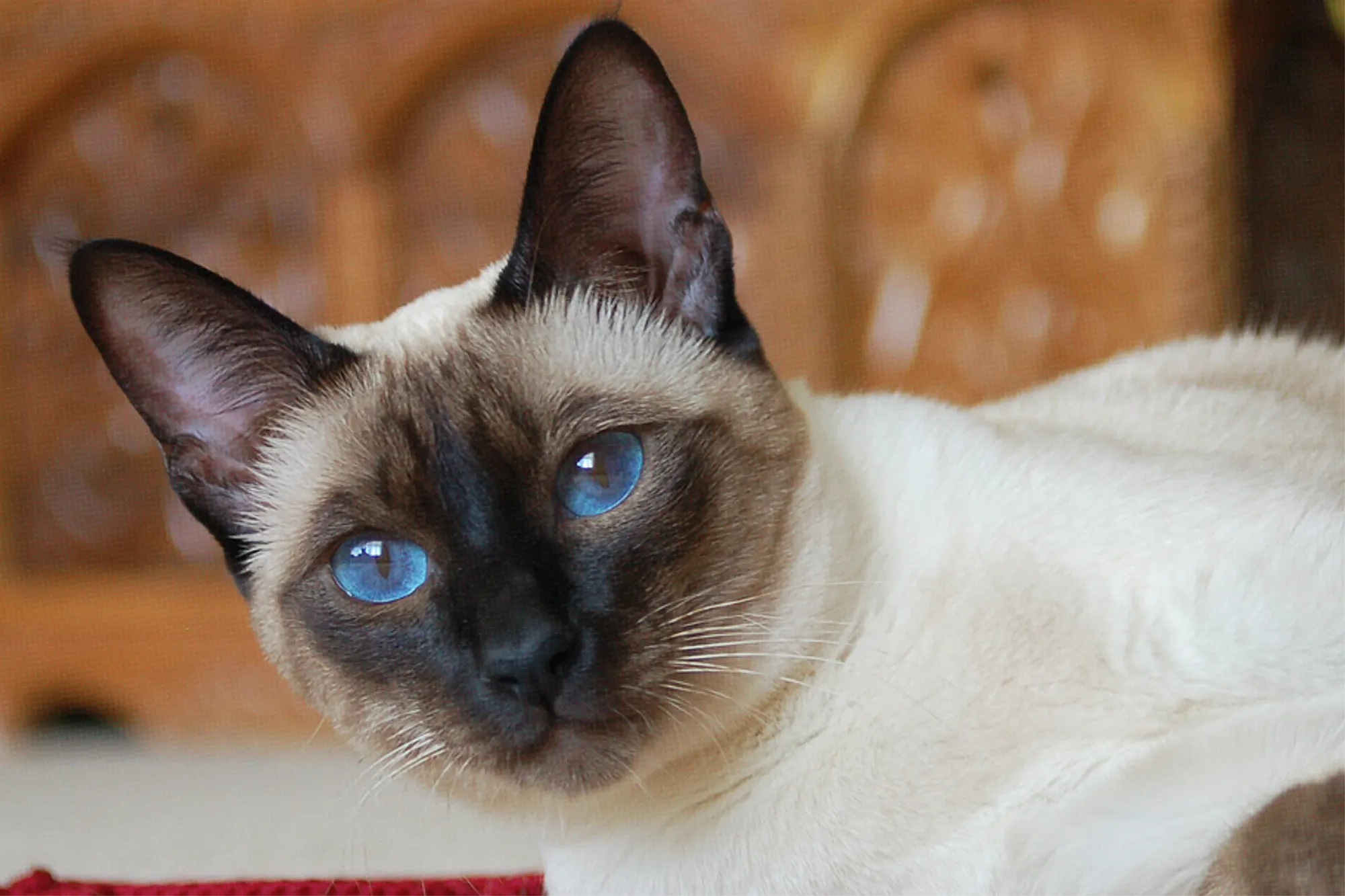Siamese cats have captured the hearts of cat lovers due to their stunning appearance, engaging personality, and affectionate nature. This comprehensive guide delves into the history, behavior, appearance, diet, health issues, and other essential aspects that define this remarkable breed.
 The Siamese Cat At A Glance
The Siamese Cat At A Glance
Family: Felidae
Class: Mammalia
Lifespan: 12-20 years
Length: 15-20 inches (male and female)
Weight: 6-14 pounds (male and female)
Energy Level: High
Personality: Affectionate, social, intelligent, curious, vocal, demanding
Temperament: Playful and energetic
Intelligence: A highly intelligent and trainable breed, known for their problem-solving abilities.
The History of Siamese Cats
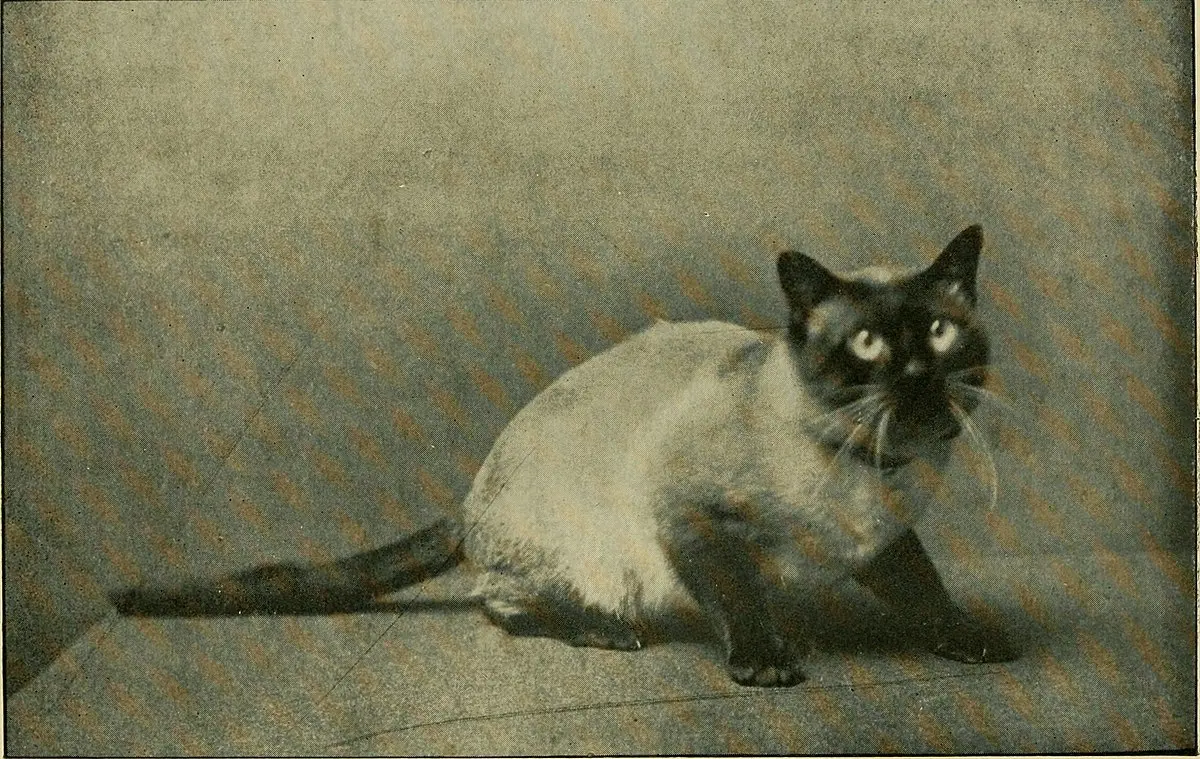
Siamese cats originated in Siam, now known as Thailand, where they were highly regarded and often associated with royalty. Historical texts from the 14th-century Ayutthaya period show illustrations of Siamese cats. The first documented Siamese cats in the Western world can be traced back to the late 1800s, when they were brought to Europe and the United States as gifts or through trade.
The Cost of a Siamese Cat
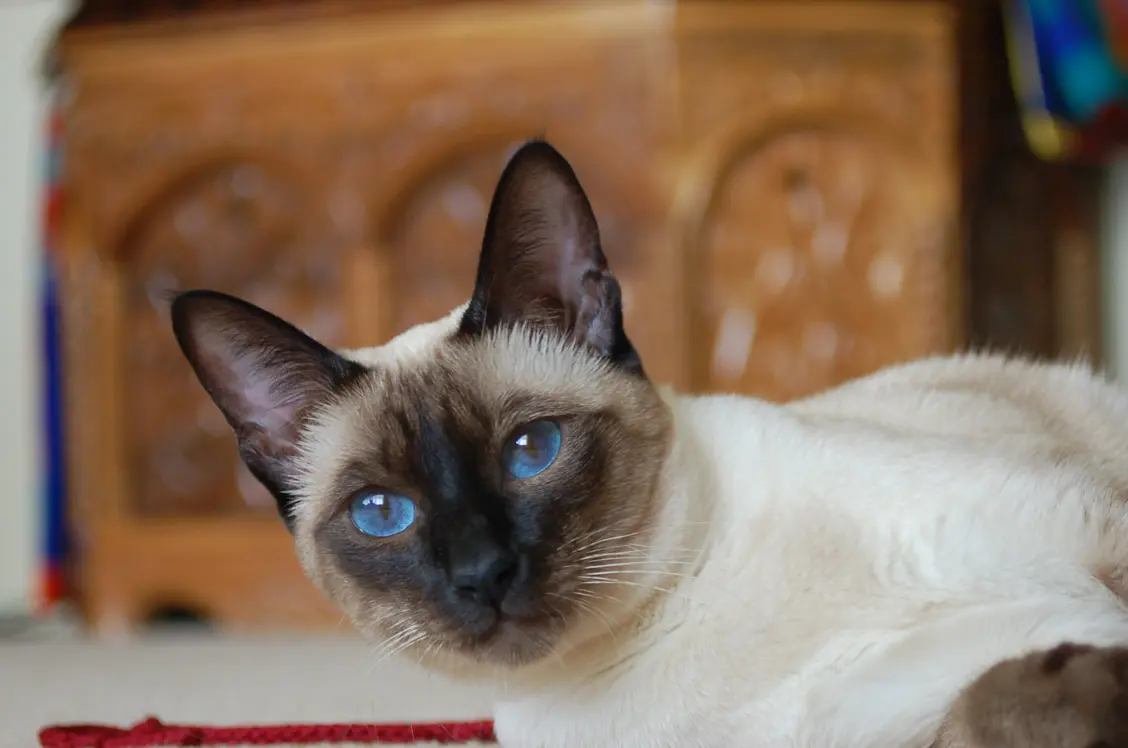
The cost of Siamese cats can vary greatly based on multiple factors. For instance, the average cost of Siamese kittens can range from $250 to $1,200.
Pricing can increase substantially if you’re considering pedigree kittens, especially from reputable breeders. Prices for these kittens can range from $400 to $1,000, and even reach as high as $1,500 if the parents hold championship statuses.
Moreover, adult Siamese cats are sometimes priced more than kittens, potentially costing up to $2,000 and even more. Keep in mind, these are upfront costs, and owning a Siamese cat will entail further financial commitment for things like food, grooming, regular vet check-ups, and potential healthcare needs.
In any case, ensuring that the breeding facilities prioritize the health and socialization of their cats is crucial. There is a wide spectrum of breeders, ranging from large-scale operations with less regard for the cats’ wellbeing, often called kitten mills, to more reputable breeders that prioritize the health and temperament of their animals.
Appearance and Physical Characteristics
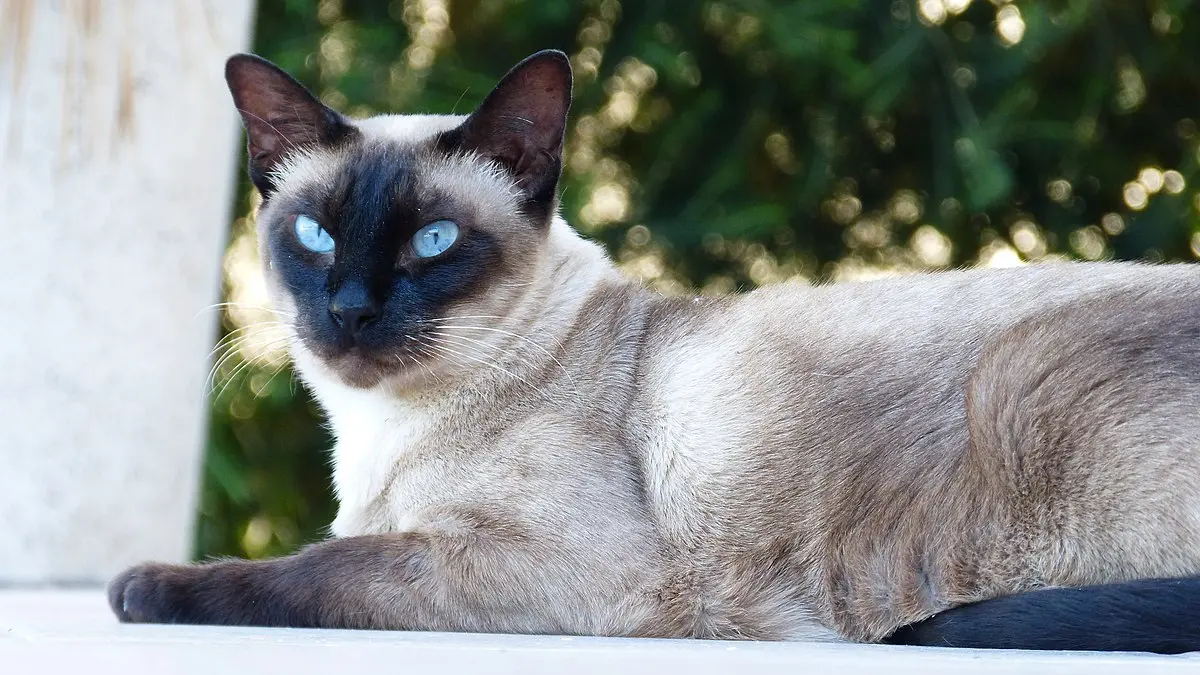
Siamese cats are medium-sized, elegant cats known for their sleek, muscular bodies. Their most striking features include:
- Blue almond-shaped eyes
- Triangular head shape
- Large, pointed ears
- Short, glossy coat
- Long, thin tail
- Tonal color points in various shades, such as seal, chocolate, blue, and lilac
Behavior and Personality
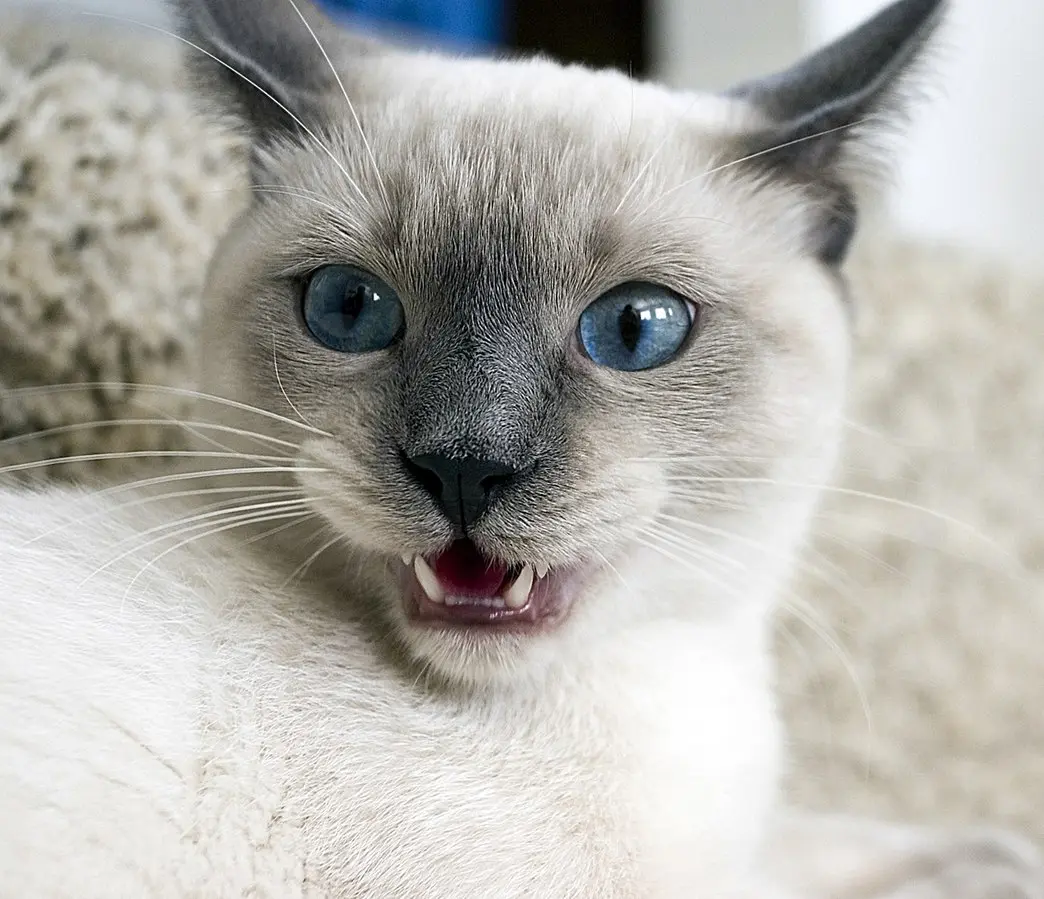
Siamese cats are known for being vocal, social, and highly intelligent. They form strong bonds with their owners and are known for wanting to be involved in their daily activities. The following are examples of their behavior:
Outgoing and Sociable
Siamese cats are known for their sociability. Unlike some other cat breeds, they enjoy the companionship of their owners and thrive on interaction. As an incredibly social breed, they often get along well with other cats, dogs, and are also tolerant of children.
Highly Intelligent and Curious
Siamese cats are among the most intelligent cat breeds. They are problem solvers, often learning to operate door handles or complex toys. Their curiosity leads them to explore every nook and cranny of their environment. This intelligence and curiosity make interactive toys and games a must for keeping them mentally stimulated.
Vocal and Expressive
Siamese cats love “talking” to their owners, and are known for their loud and low-pitched voice, which is often likened to the cries of a human baby. They use their voices to express a variety of needs or desires, whether it’s asking for meals, attention, or just voicing their opinion on their day-to-day activities.
Playful and Energetic
Siamese cats retain their playful kitten-like behavior throughout their lives. This breed has plenty of energy and appreciates interactive toys, puzzle feeders, or laser pointers to chase. Without stimulation, they can resort to mischievousness or become anxious.
Affectionate and Demanding
Siamese cats form strong bonds with their human companions. They love to cuddle and often follow their owners around the house. Be prepared for your Siamese cat to be somewhat demanding, as they crave attention, companionship, and interaction more intensively than many other breeds. They’re not typically a ‘lone’ cat and may not thrive if left alone for long periods.
Strong Hunting Instincts
Despite their domestication, Siamese cats retain strong instincts from their ancestors. They are excellent hunters and love to chase moving objects, so toys that engage these instincts can be a great addition to their playtime.
Adaptable
Siamese cats are adaptable and do well in various living environments, whether in a small apartment or a sprawling house. As long as they have plenty of opportunities for play and interaction, they can adapt to different home settings.
Diet and Nutrition
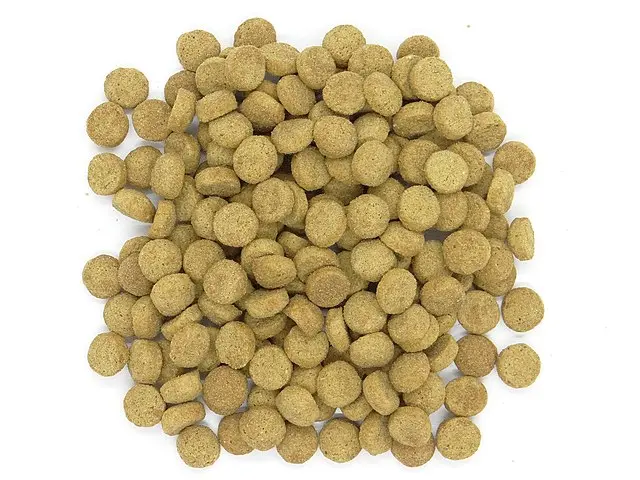
A balanced diet plays a vital role in maintaining the health and well-being of Siamese cats. To meet their daily nutritional needs, it’s recommended to feed them with cat food-grade meals, prepared considering feline dietary requirements.
Protein
Siamese cats are obligate carnivores, meaning their bodies are designed to thrive on a diet high in animal protein. The primary part of their diet should include protein from sources like poultry, fish, and meat. Protein is crucial for supporting their overall growth, muscle development, and immune function.
Carbohydrates
Limiting the intake of carbohydrates is essential when it comes to a Siamese cat’s diet. Unlike humans, cats do not have the enzymatic ability to digest and process carbohydrates effectively. Instead, they derive most of their energy from protein and fat.
Fats and Omega-3 Fatty Acids
Fats provide the most concentrated source of energy for cats. They also aid in nutrient absorption and taste enhancement. Essential fatty acids, such as Omega-3 and Omega-6, support your cat’s skin health, coat condition, brain development, and inflammatory response.
Vitamins and Minerals
Siamese cats require various vitamins and minerals to maintain their health. For instance, Vitamin A is vital for vision, Vitamin D is necessary for bone health, and Vitamin E acts as an antioxidant. Minerals like calcium, phosphorous, and potassium are also integral for body function.
Water
Proper hydration is essential for a Siamese cat’s overall health. Moist or canned food can help provide some of their water requirements. However, fresh water should always be accessible.
Feeding Considerations
The Siamese cat’s diet should be split into multiple small meals throughout the day. Overfeeding can lead to obesity, which is often linked with health issues like diabetes and arthritis.
Cats’ nutritional needs can change over different life stages (kitten, adult, senior) and according to their health status. Always consult your vet before introducing any new food or supplement to your cat’s diet.
Housing Options
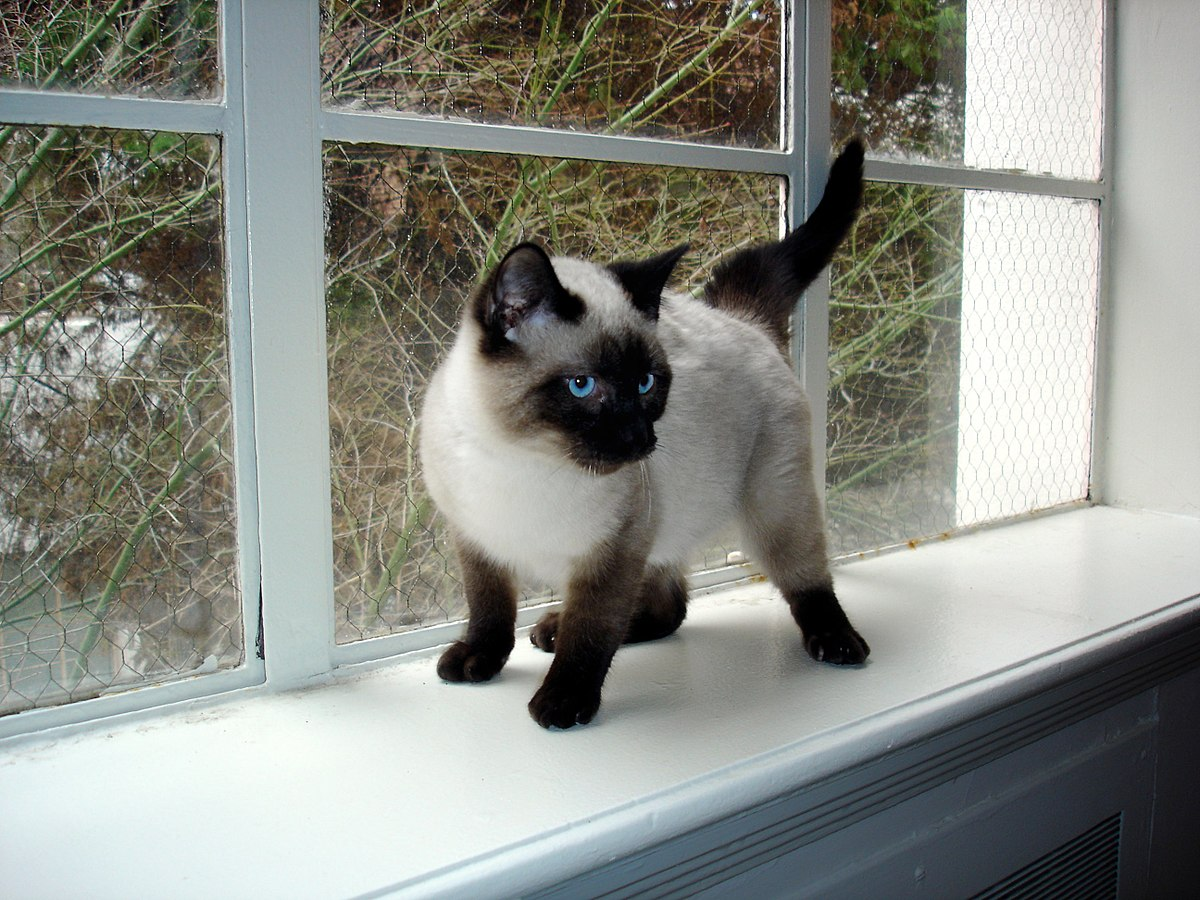
Providing a comfortable and safe living space for your Siamese cat is crucial to their overall well-being and happiness. These cats are known for being highly sociable and active, so choosing a housing option tailored to their natural instincts and needs is essential. Here are some housing options and tips for creating an enriching environment for your Siamese cat:
Indoor Living
Siamese cats thrive indoors in a well-equipped environment. A stimulating and safe indoor setting can promote mental and physical health for your Siamese companion. Consider the following elements when setting up an indoor living space:
- Comfortable sleeping area: Provide a warm, cozy bed or sleeping spot in a quiet part of your home, away from the hustle and bustle.
- Feeding and water station: Set up a designated area for your Siamese cat’s food and water, away from their litter box and sleeping area.
- Litter box: Place a clean, easily accessible litter box in a discreet and private location.
- Vertical space: Install cat perches, shelves, or a sturdy cat tree to encourage climbing and jumping, satisfying their natural instincts.
- Scratching options: Offer multiple scratching posts or pads throughout your home to help them maintain their claws and deter them from scratching furniture.
- Toys and enrichment: Provide interactive toys, puzzle feeders, or ball chasers to keep your Siamese cat mentally and physically stimulated.
- Social interaction: Siamese cats crave companionship, so spending quality time with them each day is essential. In addition to playing games and cuddling, you may consider adopting a second cat as a playmate if you’re often away from home.
Outdoor Access
Although Siamese cats can live contently indoors, you may want to offer them some outdoor access. Keep in mind that being outdoors may expose them to potential risks, such as predators, accidents, or diseases. To ensure your Siamese’s safety while outside, consider these options:
- Enclosed outdoor space: Create a catio or an enclosed outdoor area, where your Siamese cat can safely experience fresh air and sunshine while remaining protected from harm.
- Mesh window screens: Install secure window screens or mesh nettings to allow fresh air without compromising your cat’s safety.
- Leash and harness training: With patience and positive reinforcement, you can train your Siamese cat to walk on a leash and harness. This controlled outdoor exploration maintains their safety while providing them with physical and mental stimulation.
General Safety Tips
Regardless of the housing option you choose for your Siamese cat, keep these safety tips in mind:
- Ensure all windows, doors, and other openings are securely locked or screened.
- Keep potentially hazardous items, such as cleaning supplies, medications, and toxic foods, safely out of reach.
- Secure or remove objects that could be harmful to your cat, such as electrical cords or poisonous plants.
In conclusion, creating a comfortable and stimulating environment tailored to your Siamese cat’s unique needs is essential to their overall well-being. Consider their sociable and active nature when setting up their living space, and ensure their safety is prioritized, whether they are indoors or have controlled outdoor access.
Health Issues

Siamese cats are generally considered a healthy breed. However, they’re susceptible to some health issues:
- Dental problems: Regular dental check-ups and at-home dental care are essential to prevent issues like periodontitis or gingivitis.
- Heartworm: Siamese cats can be susceptible to heartworm infections, so regular heartworm preventative medication is recommended.
- Amyloidosis: A rare but potentially fatal disease where protein deposits accumulate in the liver, kidneys, or spleen.
- Progressive retinal atrophy: A degenerative eye disease that can lead to vision loss.
Regular veterinary care, including annual exams and vaccinations, is essential to ensure your Siamese cat stays healthy throughout its life.
How Long Do Siamese Cats Live?
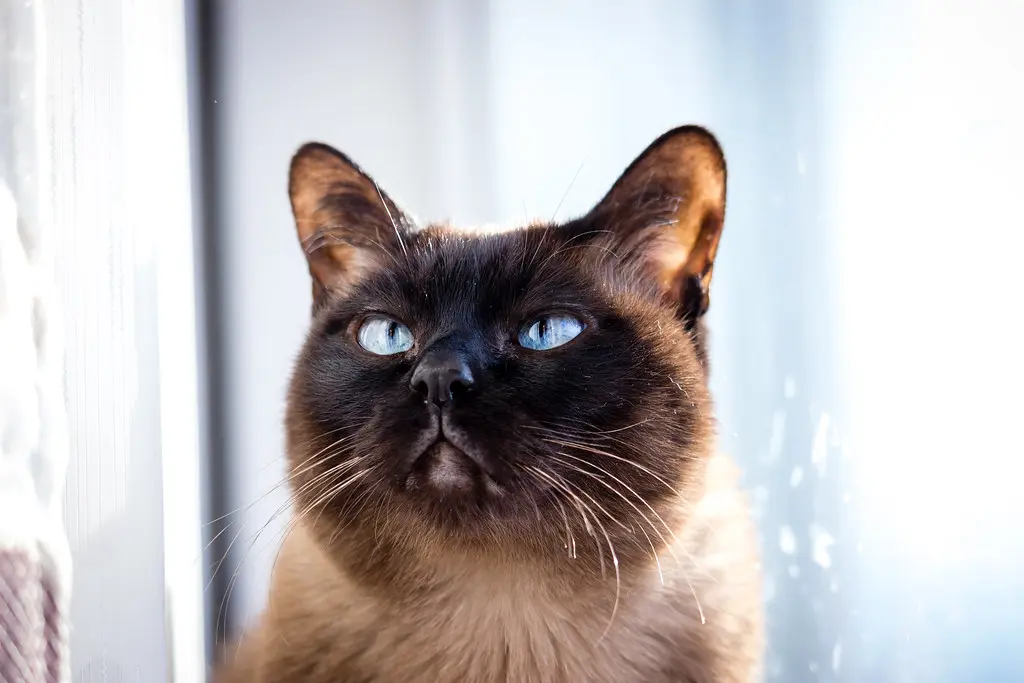
With proper care, Siamese cats typically have a longer lifespan compared to other cat breeds. On average, Siamese cats live between 15 and 20 years. However, it’s not uncommon for some Siamese cats, especially those in excellent health, to reach their early twenties.
Factors Affecting the Lifespan of Siamese Cats
A multitude of factors can influence the longevity of a Siamese cat:
1. Genetics:
Genetic predisposition, inherited from their parent cats, can play a significant role in a Siamese cat’s lifespan. For instance, Siamese cats are genetically prone to diseases such as gingivitis, asthma, and certain types of heart disease. Early detection and management can help prolong a Siamese cat’s lifespan.
2. Diet and Exercise:
Providing a balanced diet and ensuring your cat gets enough exercise can enhance their overall health, thereby extending their lifespan. Obesity can drastically shorten any cat’s life expectancy, and Siamese cats are no exception.
3. Regular Vet Check-ups:
Routine veterinary examinations can contribute to early detection and intervention against potential health problems. Regular vet visits are especially crucial for aging cats.
Grooming and Caring for Siamese Cats
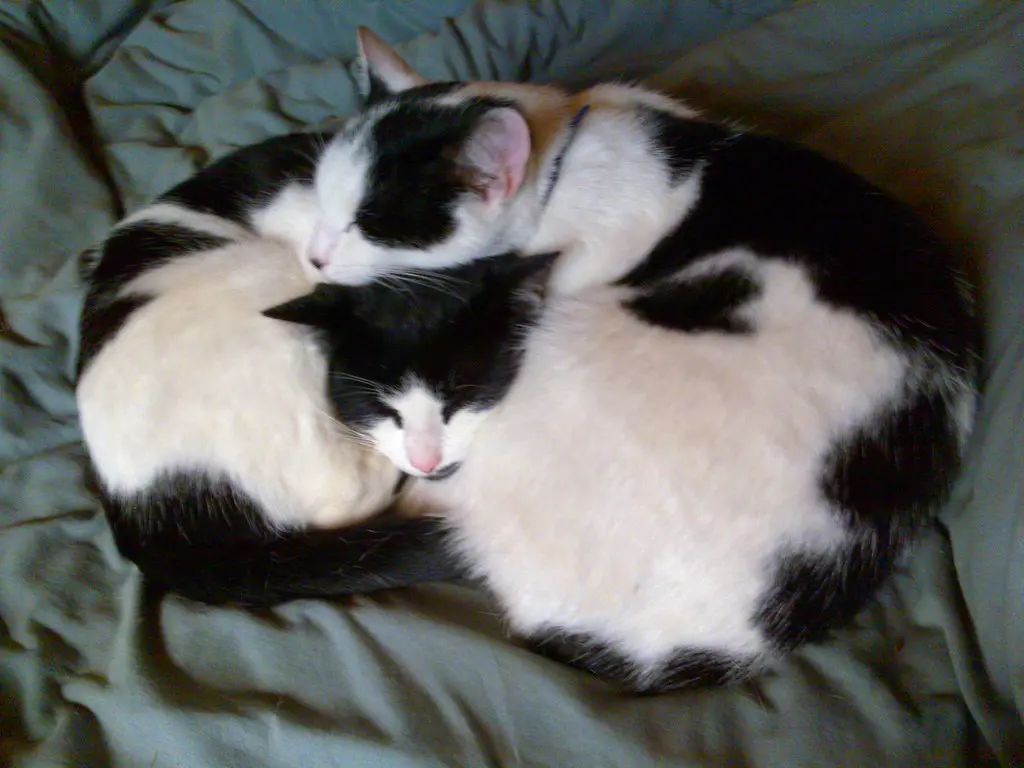
Siamese cats are relatively low maintenance compared to other breeds. That said, they do require specific care to maintain their overall wellness and enhance their stunning features.
1. Coat Care:
One of the prominent features of Siamese cats is their gorgeous, short, and glossy coats. Luckily, their fur doesn’t mat easily; a weekly combing using a stainless-steel, fine-toothed comb is sufficient to keep their coat and skin healthy.
2. Dental Hygiene:
Like all cats, Siamese cats are prone to periodontal disease, contributing to other significant health problems if left unchecked. Regular teeth brushing using vet-approved products is ideal, along with routine dental check-ups.
3. Eye Care:
Siamese cats are known for their strikingly deep blue eyes. To keep their eyes clear and clean, gently wipe away any discharge with a damp cloth.
4. Regular Vet Visits:
As with lifespan, regular vet check-ups are necessary for maintaining your Siamese cat’s overall health. It’s particularly relevant for Siamese cats as they are prone to certain breed-specific health conditions, including asthma and heart issues.
Do Siamese Cats Make Good Pets?
Absolutely, Siamese cats make wonderful pets! They’re known for their friendly and active behavior, boasting distinct personalities that make for excellent companions. These felines are not just sociable and loving, but also visually appealing with their sleek bodies and striking blue eyes.
Siamese cats are also very intelligent and highly trainable. However, their high intelligence and activity levels do mean that they can cause more mischief than other cats. Also, Siamese cats are routine “Chatty Cathys,” with a unique, vocal meow that reflects their desire to share with you, stories about their day.
These cats are not only incredibly social, but they’re also quite dependent on human connection. This means that if you’re often away from home for most of the day, a Siamese cat may not be the best pet for you.
Final Thoughts
Siamese cats make exceptional companions for those looking for an intelligent and affectionate feline friend. Remember that each cat is an individual, so personalities may vary. When choosing a Siamese cat, researching reputable breeders or adopting from a rescue organization will ensure that your new companion has the best possible start in life. Happy adoption!
